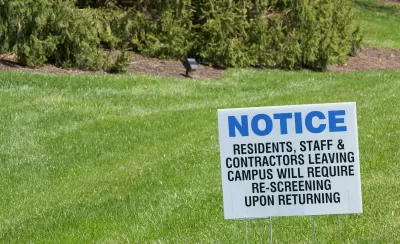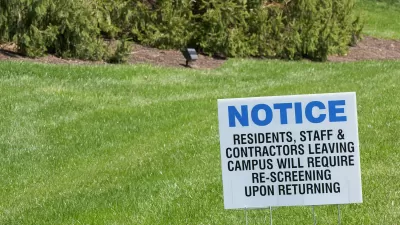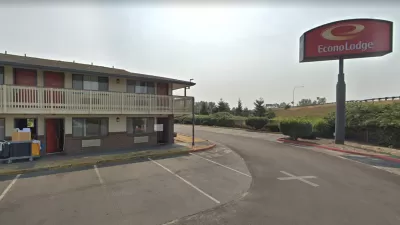Older generations have increasingly segregated over the past century-plus of U.S. history, and the pandemic is only one more example of why that's a problem for young and old.

For all the discussion about aging in place in recent years, the history of the United States during the industrial era and into current days is one of increasing age segregation, according to an article by Stephen Mihm.
"In 1850, nearly 70% of individuals age 65 or older lived with their adult children," according to Mihm. "By the 1930s, the percentage of elderly whites living with their children declined to just under 40 percent; by century’s end, it had fallen all the way to 13 percent."
After explaining why this massive demographic shift occurred during the 20th century, Mihm concludes by listing a few reasons why the trend is problematic.
A growing body of research suggests segregating people by age isn’t healthy for anyone, young or old, and that it has helped fuel divisions in the nation’s politics: When generations live apart, political polarization follows — the 2016 election comes to mind. But these concerns, rarely articulated, haven’t come close to raising societal alarms.
The pandemic might be the occasion that raises more of those societal alarms, according to Mihm.
FULL STORY: Coronavirus Exposes the Dangers of Age Segregation

Maui's Vacation Rental Debate Turns Ugly
Verbal attacks, misinformation campaigns and fistfights plague a high-stakes debate to convert thousands of vacation rentals into long-term housing.

Planetizen Federal Action Tracker
A weekly monitor of how Trump’s orders and actions are impacting planners and planning in America.

Chicago’s Ghost Rails
Just beneath the surface of the modern city lie the remnants of its expansive early 20th-century streetcar system.

Bend, Oregon Zoning Reforms Prioritize Small-Scale Housing
The city altered its zoning code to allow multi-family housing and eliminated parking mandates citywide.

Amtrak Cutting Jobs, Funding to High-Speed Rail
The agency plans to cut 10 percent of its workforce and has confirmed it will not fund new high-speed rail projects.

LA Denies Basic Services to Unhoused Residents
The city has repeatedly failed to respond to requests for trash pickup at encampment sites, and eliminated a program that provided mobile showers and toilets.
Urban Design for Planners 1: Software Tools
This six-course series explores essential urban design concepts using open source software and equips planners with the tools they need to participate fully in the urban design process.
Planning for Universal Design
Learn the tools for implementing Universal Design in planning regulations.
planning NEXT
Appalachian Highlands Housing Partners
Mpact (founded as Rail~Volution)
City of Camden Redevelopment Agency
City of Astoria
City of Portland
City of Laramie





























